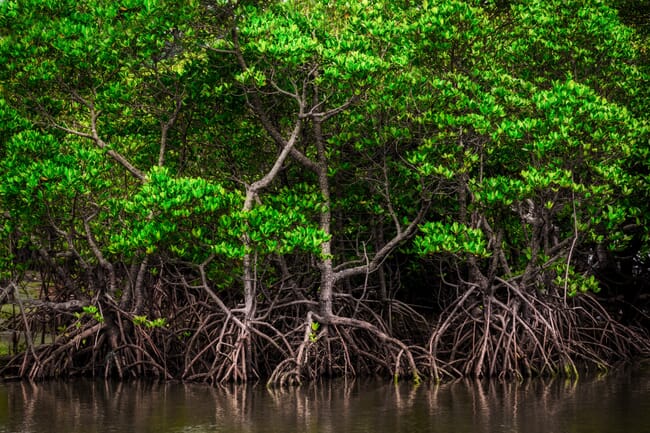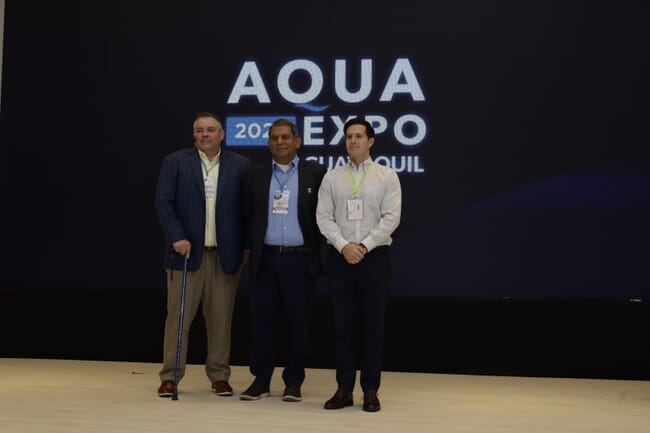
The agreement is the first national commitment for conversion-free aquaculture from any country
According to a joint news release from CNA and WWF-Ecuador, this agreement marks the first national commitment for conversion-free aquaculture from any country across the globe.
Ecuador is home to the largest mangrove forests in the Western hemisphere, but has seen coastal habitat loss due to conversion for shrimp farming. Demand for Ecuador’s shrimp has been rising consistently over the last five years, and the nation is currently the world’s largest shrimp exporter – putting greater pressure on coastal habitat and wetland areas.
The new agreement between WWF-Ecuador and CNA will utilise geospatial data generated by Clark Labs to analyse and classify land cover in coastal regions where shrimp farming is most common. Using this research and data, based on scientific-evidence, CNA will be able to set a baseline and repeat this analysis year over year to reduce and ultimately end all conversion from shrimp farming across the country in the near future.
“It is time for a change in the way we produce commodities such as shrimp, in a more environmentally friendly way, particularly respecting mangroves and not contributing to their degradation. A large sector of the shrimp industry is now committed to moving towards more sustainable production and organisations like WWF are here to help make that happen,” said WWF-Ecuador country director, Tarsicio Granizo.
WWF’s Living Planet report recently revealed wildlife populations in Latin America and the Caribbean have declined by 94 percent since 1970. This devastating statistic underscores the importance of investing in this approach to monitoring conversion rates in Ecuador’s shrimp farming industry to ensure biodiversity and the nation’s natural ecosystems remain intact.
“The Ecuadorian shrimp sector has been characterised as an industry that cares for the environment and protects the surrounding ecosystems. This agreement will allow us to further strengthen our industry's commitment to the conservation of ecosystems as valuable as mangrove forests and serve as an example for other industries in Ecuador and worldwide” shared Jose Antonio Camposano, Executive President of the National Aquaculture Chamber of Ecuador.

Ecuador's shrimp sector boasts high environmental ratings
“Precisely, through this research effort based on scientific evidence, WWF seeks to identify a baseline to support future monitoring and thus ensure the ecological integrity of these important ecosystems. Hopefully one day when people ask which is the country with the most sustainable shrimp production, they point to Ecuador as an example of good shrimp production practices,” added Granizo.
As the world faces an interconnected climate and biodiversity crisis, steps to curb unstainable use of our natural resources will be essential for the future health of both people and the planet. The time is right for Ecuador to commit to halting deforestation and habitat conversion from shrimp farms, maintaining the carbon sequestration benefits Ecuador’s mangroves provide and delivering much needed leadership in creating a more sustainable future for seafood.




